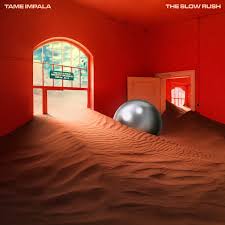LYKKE LI - Wounded Rhymes
 Friday, March 11, 2011 at 10:00AM
Friday, March 11, 2011 at 10:00AM  Every time my three year-old daughter hears distinct drumming, she turns to me and asks, "Daddy, can you hear the drums?" Consequently, I'm hearing that question a lot when I listen to the new Lykke Li in her presence. For her second release, the Swedish singer has decided to add some muscle to her frame in the form of frequently thumping, tribal percussion—call it "Pounded Rhymes." Nearly half of the tracks—and most of the immediate ones—are driven by Spector-esque patterns of deep echoing toms. Add on a healthy dose of organ and classic vocal hooks, and it starts to get tempting to slot Li alongside the many contemporary garage/girl-group revival acts like Best Coast or Dum Dum Girls.
Every time my three year-old daughter hears distinct drumming, she turns to me and asks, "Daddy, can you hear the drums?" Consequently, I'm hearing that question a lot when I listen to the new Lykke Li in her presence. For her second release, the Swedish singer has decided to add some muscle to her frame in the form of frequently thumping, tribal percussion—call it "Pounded Rhymes." Nearly half of the tracks—and most of the immediate ones—are driven by Spector-esque patterns of deep echoing toms. Add on a healthy dose of organ and classic vocal hooks, and it starts to get tempting to slot Li alongside the many contemporary garage/girl-group revival acts like Best Coast or Dum Dum Girls.
Except, she’s not very garage-rock. Unlike those bands—and thanks in no small part to the skilled production of Bjorn Yttling (of Peter, Bjorn & John)—her approach is far more honed and set on the big time. It's not so much that Wounded Rhymes feels like a sellout, but rather than play up the "shy, shy, shy" persona of her debut Youth Novels, Li is now full of bravado. This newfound cocksureness does occasionally lead her to questionable places—the much talked about "I'm your prostitute" line from first single, "Get Some", only really works if you don't think about it too much—but overall, it's easy to get swept up in her eager exuberance. There's a thrill to be had in the more energetic parts of the record that speaks directly to one's early 20s.
Even more importantly, she has wisely not abandoned her vulnerability altogether. Instead, her swagger works to provide a sharp repose to the more tender moments of the album. Tracks like "Unrequited Love" and "Love Out of Lust" are gorgeous and ache with a feeling that Li wasn't quite able to conjure before. Taken as a whole, the songs on this record work together to communicate a confidence that tries to hide fragility, while making it clear that ultimately, it's the more delicate impulses that still drive her. When it’s all delivered through such strong pop songs, her internal power struggle—between reckless libido and emotional dedication—is a fascinating one to track. All of which suggests that in twenty years’ time, this album might mean a lot more to my daughter than just a bunch of great drumming.
 Pop/Rock
Pop/Rock 

Reader Comments (1)
I love this review. When I heard the album, I was wondering why I couldn't connect right away & you've really helped make sense of that. : )